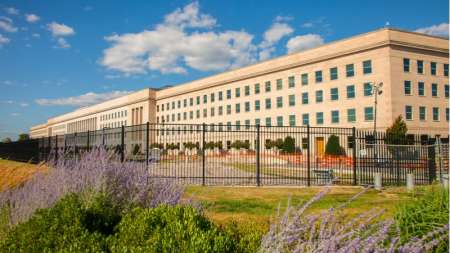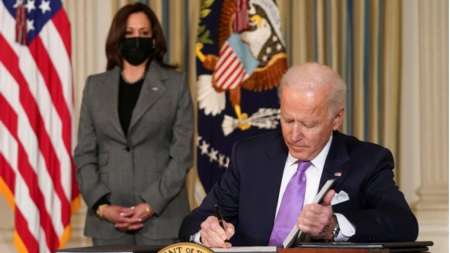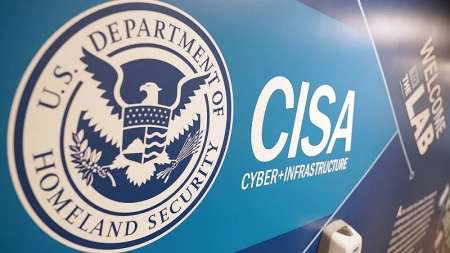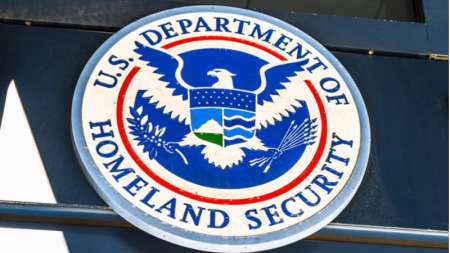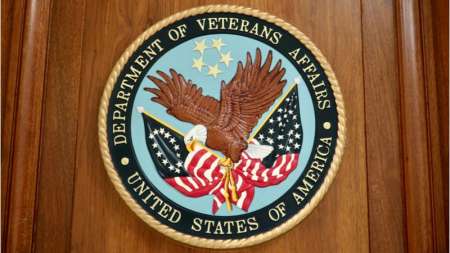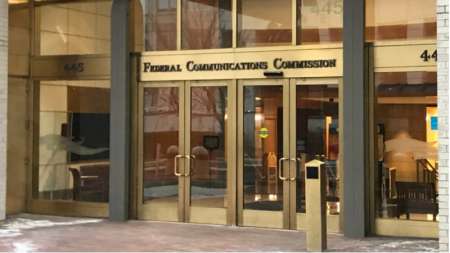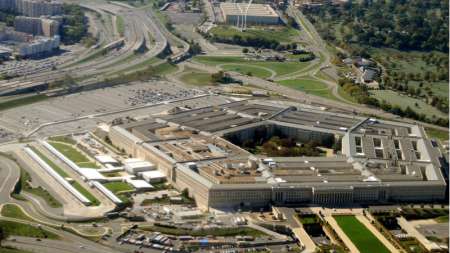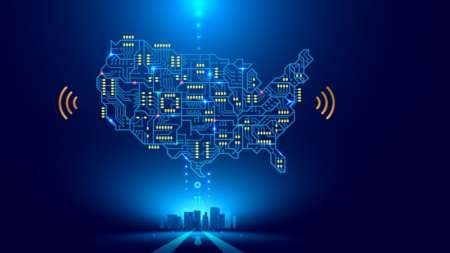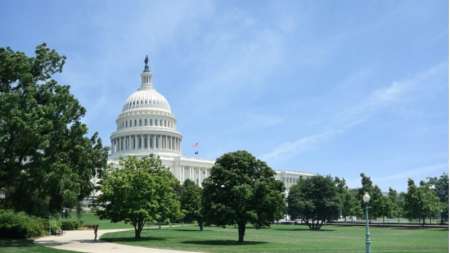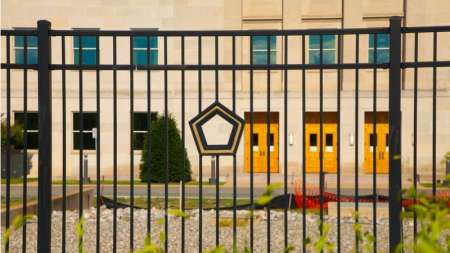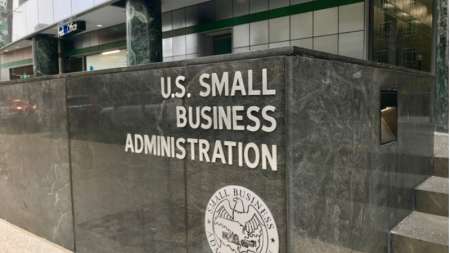Officials from the Department of Defense (DoD) emphasized this week scaling cloud and data capabilities to empower warfighters operating at the network edge is crucial to meet the Pentagon’s mission needs. […]
With cybercriminals becoming more sophisticated at disguising themselves as legitimate network users, a top Defense Department (DoD) IT official said this week that the Pentagon’s move to zero trust security architectures gives the agency a “fighting chance” to detect and eject hackers before they can do much damage. […]
Following a November 10 meeting with French President Emmanuel Macron, Vice President Kamala Harris announced that the U.S. will sign onto a three-year old framework offered by the French government as an international framework for cooperation on cyber and supply chain security. […]
The National Highway Traffic Safety Administration (NHTSA) has embarked on a new initiative to assess the status of geographic information systems (GIS) within the 911 community, with a goal of defining what is required to achieve interoperable GIS data sharing nationwide. […]
After its passage by the House of Representatives Nov. 5, President Biden plans to sign the Infrastructure Investment and Jobs Act on Monday, Nov. 15, authorizing billions of new funding for broadband and cybersecurity, in addition to traditional infrastructure, the administration announced Nov. 10. […]
The Department of Defense (DoD) is looking to industry for help in bolstering the cybersecurity of U.S. allies and partner nations, said DoD’s Mieke Eoyang, deputy assistant secretary of defense for cyber policy, at C4ISRNET’s CyberCon 2021 event on November 10. […]
Cybersecurity and Infrastructure Security Agency (CISA) Director Jen Easterly said November 10 that the agency’s Binding Operational Directive (BOD) issued earlier this month to Federal agencies to remediate against a list of 300 known exploited cyber vulnerabilities appears to be getting a good reception from government and industry as an effective roadmap on how to prioritize action against prevalent cyber threats. […]
The Department of Homeland Security (DHS) is collecting feedback and opinions regarding the use of artificial intelligence (AI) and facial recognition between now and December 6. […]
The Department of Transportation has been tasked with seeking private sector input to create standardized data exchange requirements for goods movement in the transportation supply chain, according to a White House announcement of administration plans to fund ports and waterways improvements aimed at improving supply chain resiliency. […]
With an international focus on climate change after the United Nation’s Climate Change Conference, Department of Energy (DoE) CIO Ann Dunkin said today that data center consolidation is helping to reduce the agency’s carbon footprint, and pointed to the further use of scalable cloud-native apps as the next step in that campaign. […]
According to a recently released Tripwire survey, most security professionals in the private and public sector described their zero trust security adoption as either progressing, or even well-developed, but also in need of more work. […]
The Department of Veterans Affairs (VA) has released a new cybersecurity strategy intended to protect against exposure of Veterans’ personal information or the corruption of critical data. […]
Federal CIO Clare Martorana urged government technology leaders this week to take a page from the “Undercover Boss” television program and discover first-hand the experiences and viewpoints of their customers in order to better understand where government needs to make improvements in how citizens best interact with government services. […]
The National Reconnaissance Office (NRO) recently released a request for proposals (RFP) for access to commercial satellite imagery from U.S based companies. […]
The Federal Communications Commission announced today that it will commit more than $421 million in the latest round of funding for the Emergency Connectivity Fund (ECF), bringing total program commitments to over $3.05 billion and 10 million students connected. […]
Bipartisan legislation introduced last week directs the Department of Defense (DoD) to make its datasets publicly and easily accessible via a strategic pilot program in order to advance software and artificial intelligence (AI) capabilities beyond the Pentagon. […]
After more than two months of angling and dealmaking, the House of Representatives voted to approve the $1 trillion Infrastructure Investment and Jobs Act – also known as the Bipartisan Infrastructure Framework – on November 5, sending the bill along with its $2 billion in cyber funding and $65 billion in broadband appropriations to President Biden’s desk for final approval. […]
Richard Grabowski, acting program manager for the Cybersecurity and Infrastructure Security Agency’s (CISA) Continuous Diagnostics and Mitigation (CDM) program, explained at a November 4 event organized by FCW that new memoranda of understanding (MOA) that the program has been signing with Federal agencies are a key component to enabling better cyber threat hunting by CISA across agency networks. […]
The House of Representatives is expected to hold votes on its fiscal year (FY) 2022 reconciliation package – known as the Build Back Better Act (BBB) – as well as the Infrastructure Investment and Jobs Act – or the Bipartisan Infrastructure Framework (BIF) – today after the House Rules Committee finalized a rule for debate on the now $1.75 trillion “soft” infrastructure legislation late on Nov. 4. […]
With an estimated 85 percent of the nation’s critical infrastructure controlled by private entities – and with many of those failing to practice basic cyber hygiene – witnesses told House lawmakers at a November 4 hearing that the time may be ripe for mandatory cyber incident reporting requirements for critical infrastructure operators. […]
Federal agencies as a group are “close” to completing work to put in place the first two of the Continuous Diagnostics and Mitigation (CDM) program’s four key capabilities, said Betsy Kulik, senior advisor for the Cybersecurity and Infrastructure Security Agency’s (CISA) CDM program, at a November 4 online event organized by FCW. […]
The cybersecurity threats that have prompted wide-scale action to improve security across the Federal government are posing equal dangers to state and local governments, and officials said at FCW’s CDM Summit virtual event on November 4 that the same solutions being put into place by the Feds also are scalable and adaptable by state and local governments. […]
A group of Republican senators sent a letter to White House Coronavirus Response Coordinator Jeffrey Zients asking him to inform Congress how the Biden Administration plans to address data collection concerns following a recent Centers for Disease Control and Prevention (CDC) contact tracing order. […]
While several aspects in the electoral system may be at risk, election officials at the Federal and state level agreed that cyberthreats have routinely and at larger numbers attacked voters’ confidence in the system with the spread of misinformation. […]
After a lengthy review process, the Department of Defense today issued an update to its Cybersecurity Maturity Model Certification (CMMC) program – dubbed CMMC 2.0 – that will simplify some of the cybersecurity requirements for contractors in the Defense Industrial Base (DIB) looking to do business with the government. […]
As high-profile ransomware and other cyberattacks have spiked over the past year, the Small Business Administration (SBA) is working to prevent and mitigate against them by leveraging capabilities from the Continuous Diagnostic and Mitigation (CDM) program, and working with organizations including the Cybersecurity and Infrastructure Security Agency (CISA) – which runs the CDM program – and the Federal Bureau of Investigation (FBI). […]
The Senate Homeland Security and Governmental Affairs voted today to approve and send to the full Senate for consideration 11 pieces of legislation, including several related to artificial intelligence, the cybersecurity workforce, and the Cybersecurity and Infrastructure Security Agency (CISA). […]
While President Biden’s executive order (EO) on improving the nation’s cybersecurity and the follow-on guidance from the White House Office of Management and Budget (OMB) represent critical steps forward in protecting the U.S. against the increasing volume and dangers of cyber-attacks, Federal agency officials said during an ATARC webinar on November 2 that the directives also present challenges that may require flexibility in their execution. […]
Despite a general cyber workforce shortage, National Cyber Director Chris Inglis today said his office has a “robust pipeline of talent” and expects to have 25 employees staffed in his office by the end of December, once Fiscal Year (FY) 2022 appropriations are released. […]
The Cybersecurity and Infrastructure Security Agency (CISA) today issued a Binding Operational Directive (BOD) to significantly boost the nation’s cyber hygiene by creating a catalog of known exploited vulnerabilities and forcing Federal agencies to remediate them. […]

